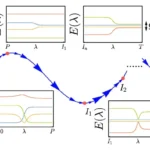Amazon has unveiled Rufus, its latest artificial intelligence assistant designed to assist shoppers with product inquiries, but the feature’s debut has raised significant concerns and questions.
Rufus aims to guide users in finding products that suit their needs. Amazon asserts that the company’s practices foster competition and innovation within the retail industry. Nevertheless, the algorithm powering Rufus remains a closely guarded secret, with Amazon providing limited insights into its training process, which includes data from the company’s product catalog, reviews, and web sources.
Given Amazon’s substantial advertising revenue, industry analysts speculate that Rufus may incorporate sponsored results in its recommendations. However, the initial rollout of Rufus appears to be free from direct advertising influence, which is likely to establish trust with consumers.
The company has emphasized Rufus’ potential to revolutionize the shopping experience. CEO Andy Jassy described Rufus as offering a novel way for customers to discover items, showcasing examples of its responses to queries about product suitability.
Despite the controversy surrounding Amazon’s advertising practices, analysts recognize Rufus’s potential to enhance engagement and drive revenue growth through increased conversions. Amazon’s access to vast purchasing and personalized data further strengthens its position against competitors like Google and Microsoft in the AI space.
As Rufus continues to evolve, Amazon faces ongoing scrutiny over its advertising and product recommendation practices. While the AI assistant promises to improve the shopping experience, its success hinges on maintaining consumer trust and transparency in its operations.





